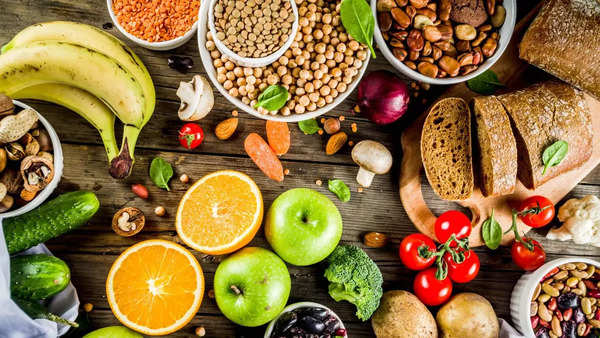What is uric acid?
Uric acid is a natural waste product formed during the breakdown of purines, which are compounds found in various foods and beverages.Normally, uric acid dissolves in the blood and is excreted through urine. However, elevated levels can lead to crystallization in joints, causing painful conditions like gout and contributing to joint inflammation. However, there are certain common foods that can silently trigger uric acid levels and joint pain.
Oily Fish
While fish is generally a healthy choice, oily varieties are rich in purines and should be consumed in moderation by individuals prone to joint issues.
Red Meat
Red meats contain moderate to high levels of purines, contributing to uric acid production and potentially worsening joint inflammation.

Shellfish
Shellfish are notorious for their high purine content, particularly shrimp and lobster, which can significantly increase uric acid levels and trigger gout attacks.
Sardines
These small fish are particularly high in purines and can lead to rapid uric acid buildup in the bloodstream, exacerbating joint pain.
Mussels and scallops
Shellfish like mussels and scallops contain high levels of purines, contributing to uric acid accumulation and potential gout flare-ups.

Sugary Beverages
Drinks sweetened with high-fructose corn syrup can elevate uric acid levels, promoting inflammation and contributing to joint discomfort.
Fructose-Rich Fruits
Certain fruits high in fructose can increase uric acid production, potentially exacerbating joint pain in susceptible individuals.

Processed Meats
Processed meats contain additives and preservatives that can trigger inflammation and raise uric acid levels, worsening joint conditions like gout.
High-fat dairy products
Full-fat dairy items can contribute to uric acid accumulation, particularly in individuals with existing joint issues or gout.

Asparagus
Although a nutritious vegetable, asparagus contains moderate levels of purines and may need to be limited for those prone to gout or joint pain.
Spinach
Spinach, while rich in vitamins and minerals, contains purines that can contribute to uric acid production and should be eaten in moderation by those managing joint health.
Mushrooms
Certain mushrooms contain moderate levels of purines and should be consumed cautiously by individuals susceptible to gout or joint inflammation.

Why these foods increase uric acid levels and joint pain:
High Purine Content: Many of these foods are rich in purines, which break down into uric acid during digestion. Excessive consumption can overwhelm the body’s ability to excrete uric acid, leading to elevated levels in the bloodstream.
Inflammatory Effects: Some foods, such as processed meats and sugary beverages, contain additives and sugars that can trigger inflammation and exacerbate joint pain associated with conditions like gout.
Impaired Uric Acid Clearance: Alcohol and certain fruits high in fructose can impair the kidneys’ ability to efficiently eliminate uric acid, contributing to its accumulation in the body.

Managing Uric Acid Levels and Joint Health:
To maintain healthy uric acid levels and minimize joint pain, consider the following strategies:
Moderation: Limit intake of high-purine foods, especially those known to exacerbate uric acid levels.
Hydration: Drink plenty of water to help flush out excess uric acid from the body.
Balanced Diet: Focus on a diet rich in fruits, vegetables, whole grains, and lean proteins to support overall health and joint function.
Avoid Excess Alcohol: Reduce or eliminate alcohol consumption, particularly beer and spirits, to prevent uric acid buildup.


